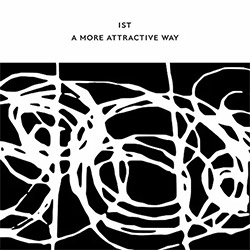
A comprehensive album of live performances from IST (Rhodri Davies: harp, preparations; Simon H. Fell: double bass, preparations; Mark Wastell: violoncello, preparations) between 1996 and 2000, beginning with their concert at Club Orange in London and including concerts in London, Billericay, Norwich and Cambridge, with a 20 page booklet of photos and text from the band & collaborators.
In Stock
Quantity in Basket: None
Log In to use our Wish List
Shipping Weight: 8.00 units
EU & UK Customers:
Discogs.com can handle your VAT payments
So please order through Discogs
Sample The Album:
Rhodri Davies-harp
Simon H. Fell-double bass
Mark Wastell-violoncello
John Butcher-tenor saxophone, soprano saxophone
Phil Durrant-violin
Click an artist name above to see in-stock items for that artist.
Label: Confront
Catalog ID: core 21
Squidco Product Code: 30008
Format: 5 CDs
Condition: New
Released: 2021
Country: UK
Packaging: Box Set - 5 CDs + Booklet
CD 1 recorded at Club Orange, Dolly FossettŐs, in Kentish Town, London, UK, on April 23rd, 1996, by Mark Wastell.
CD 2 recorded at Club Unire, Billericay Arts Association, The Fold, Billericay, UK, on May 23rd, 1997, by Mark Wastell.
CD 3 recorded at Red Rose Theatre, in Finsbury Park, London, UK, on November 27th, 1997, by Mark Wastell.
CD 4 recorded at Red Rose Theatre, in Finsbury Park, London, UK, on February 17th, 1998, by Mark Wastell.
CD 5, tracks 1-7 recorded at Other Sounds, King Of Hearts, in Norwich, UK, on November 24th, 1998, by Graham Halliwell.
CD 5, tracks 8 and recorded at Trinity College, Cambridge, UK, on May 30th, 2000, by CCCP.
"When IST's first release, Anagrams to Avoid came out (recorded in 1995 and released in 1997), it caught listeners by surprise. It's not like those who had been listening to Simon H. Fell weren't used to the bassist's wide-ranging musical interests, from his compositional frameworks for improvising ensembles like Compilation I and II and Music for 10(0) to found-sound tape constructions like Nightfall Two (Standards I) to solo outings to his coruscating duos with Charles Wharf and the Hession/Wilkinson/Fell trio to the trio Badland, where pieces by Ornette and Ellington sidled up to original free-bop excursions. But here was a new kind of group, an acoustic string trio of bass, cello and harp, with Mark Wastell and Rhodri Davies, two players most had never heard of before. But what jumped out immediately was their timbral palette as well as the way the three were beginning to rethink strategies toward group improvisation.
Improvisers were certainly fully engaged in efforts to subvert the touchstones of guitar attack, sustain and feedback, reed and brass multi-phonics and the percussive colorations of small instruments within ensemble settings. With their instrumentation, IST sidestepped that entirely. The three stretched the elemental sonics of their respective instruments, building on the intrinsic resonances, harmonics and layered overtones evoked from the strings while adding timbral orchestrations of multitudes of extensions and preparations. Working within that soundscape, they began to zero in on a micro-detailed consideration toward interaction. Over the course of five CDs, this set documents that exploration, from their first live performance in London in 1996 through a 2000 performance in Cambridge during a particularly active period for the group.
The first disc, capturing the group's public debut at an upstairs room in a London Victorian pub, documents the group working their way through an extended 35-minute improvisation followed by two shorter outings. Things start out with a crack and flurry of bustling activity with rapid back-and-forth amongst all three players. From there, the trio navigates between vigorous intensity and areas where density is dialed back and the vivid nuances of the instruments emerge, from resonant bass through shuddering overtones, clipped and muted pizzicato, scratched textures, shimmering harp shadings and rustling skitters. The two 10-plus minute pieces that follow dwell more in open densities with some particularly quiet dynamics in the second piece, underscoring the group's embrace of striated detail which they would continue to gravitate toward. Disc two kicks in a year later, around the same time as the gig that resulted in IST's second release, Consequences (Of Time And Place) as well as the release of Anagrams. The two pieces here settle more quickly into the fields explored on the shorter pieces from a year before, extending them into longer excursions. One can hear a more assured group sound, honed through countless practice sessions and more performances. On these improvisations, even as velocity mounts, there is a more measured activity level at play and the layers work more transparently.
Discs three and four, from a bit later in 1997 and early 98, present music from a series of IST + performances where the trio opened, a guest played a solo, and then the four would play together. It's worth noting that trio improvisations from each of the dates were included in excerpted form on Ghost Notes and are presented in their entirety here for the first time. First up is a collaboration with John Butcher. The two IST trio improvisations reveal continued development of group strategies, homing in on a fully integrated group sound with extended sections of atomic interaction. Even during more vigorous sections, the three utilize a sparing approach, parsed with pools of quiet and heightened attention to timbral detail. By this time, Butcher had been playing with Wastell and Davies as part of Chris Burn's Ensemble and immediately syncs into the collective tactics. One does notice how much reed sonorities jump out against the acoustic string reverberations, but Butcher is a consummate listener and effectively balances his playing within the trio. Over the course of three improvisations, the four musicians increasingly gel, with quavering reed multi-phonics and keypad pops melding with the variegated string stratifications.
By February 1998, when the meeting with violinist Phil Durrant captured on disc four took place, Wastell and Davies had recorded the first release by Assumed Possibilities with Durrant and Burn and had worked together with him on the session released as Strings with Evan Parker. This string quartet was a natural extension of those sessions. The 23-minute IST trio improvisation that opens the set is a particular highlight, with the group zeroing in with steadfast, reciprocal focus throughout. The piece is imbued with nuanced playing, particularly the closing section of brittle, metallic interplay. The four quartet pieces are compact studies ranging from 5 to 10 minutes. Each piece carves out a particular sonic area with varying levels of density, pace, and articulation. With the addition of another string player, the quartet tends toward a more open sound, with tendril-like individual parts in constantly shifting, angular layers, forking off and then twining back in.
Marking the end of 1998, a particularly active year for the group, IST embarked on an Arts Council-funded tour. During the course of the tour, they presented improvisations alongside compositions written by and for the group, something they hadn't done before and wouldn't do again. The three headed into the studio before the tour to record a handful of these compositions which appear on Ghost Notes. Disc 5 includes the final performance of the tour in Norwich, with a program of two improvisations interspersed amongst compositions by Davies, Wastell, Durrant, Guto Pryderi Puw and Karlheinz Stockhausen. In his comments between pieces captured on the recording, Fell does note that the differentiation between improvisation and composition "is sometimes tenuous" and in a blind listen, the distinctions are mostly blurred.
However, a few things jump out in the 40-minute set. Firstly, the flow of the set is somewhat different than that of other live sets documented in this box and on other live recordings of the group, with seven pieces ranging from 3 to 8 minutes long rather than their usual set including an extended improvisation along with some shorter outings. Secondly, in the improvisations as well as a few of the compositions, a delineation of the three instruments is far more apparent. Listen to the opening improvisation and the resonance of Fell's dark, sharply plucked strings, Wastell's move between percussive pizzicato and abraded arco, and the spiky attack and shimmering sustain of Davies' harp, all in clear focus in contrast to the more amalgamated collective sound of much of their playing. Their reading of Stockhausen's "Intensität" from his text pieces Aus den sieben Tagen builds with layers of arco accentuating the elemental qualities of resonance from each of the instruments. The pointillism of Guto Pryderi Puw's "X-IST" is another case, with each voice is clearly articulated across the countervailing lines. However the trio's approach toward a more coalesced sound is still in full evidence like on Durrant's composition "Sowari for IST," which centers on muted textures and timbres of the instruments shot through with high-pitched overtone resonances. It is also great to hear another version of Wastell's "Ritmico" dedicated to John Stevens, which appears on Ghost Notes, with its percussive flecks restricted to the wooden part of each of the instruments with no use of string permitted.
After their appearance as part of Derek Bailey's Company at a series of concerts in Marseille, IST didn't play together during much of 1999 while Wastell was living outside of the UK. Upon his return in the spring of 2000, the trio began their last run of active playing. The box closes with a set from Cambridge in May 2000, comprised of a 20-minute improvisation along with a short 5-minute piece. By this point, The Sealed Knot, with Wastell, Davies and Burkhard Beins, had formed, Davies had begun working in what would become an ongoing duo with John Butcher, and the strategies of minutely considered interactions, which came to be shorthanded as the reductionist scene, were beginning to germinate. The extended improvisation recalls of some of the frameworks employed in the compositional pieces melded with their ongoing development of a group sensibility. Here, the trio fuses laminal textures, gossamer overtones, miniscule creaks and pops, percussive attack and resonant sustain, areas of brisk activity and pools of considered composure with rapt listening and unremitting deliberation. The 6-minute concluding piece is a study in interactions of thwacks, plucks, hammered vigor, the resultant ringing decay, and craggy, abraded arco.
While the rest of 2000 would remain relatively busy, group activities slowed somewhat after that, with only a few gigs, albeit high profile ones in international settings, each year between 2001 and 2003. Davies and Wastell were becoming far more active with other projects and Fell had launched his more compositionally lead group SFQ and begun plans to move to France. The group played as part of the Freedom of the City Festival in 2003 and then performed their final, although unbeknown at the time, concert together as part of Confront's 20th anniversary celebrations in 2016. The trio were planning a series of 25th anniversary shows at the time of Fell's death. This box, along with the release last year of At the Club Room (their second ever gig) and two archival recordings on Davies' Archif series more than doubles the number of IST releases previously available. Beyond simply serving to fill discographic holes in the previously scant documentation of the group, this box provides an invaluable opportunity to delve into the development of this vital partnership. The fact that each disc stands on its own, deserving deep and repeated listens, is a testament to the music that Fell, Wastell, and Davies created."-Michael Rosenstein
Artist Biographies
• Show Bio for Rhodri Davies "Rhodri Davies was born in 1971 in Aberystwyth, Wales and now lives in Gateshead in the northeast of England. He plays harp, electric harp, live-electronics and builds wind, water, ice and fire harp installations. He has released four solo albums: Trem, Over Shadows, Wound Response and An Air Swept Clean of All Distance. His regular groups include: a duo with John Butcher, Common Objects, HEN OGLEDD: Dawson - Davies, a trio with David Toop and Lee Patterson, Cranc, The Sealed Knot and a trio with John Tilbury and Michael Duch. In 2008 he collaborated with the visual artist Gustav Metzger on 'Self-cancellation', a large-scale audio-visual collaboration in London and Glasgow. New pieces for solo harp have been composed for him by: Eliane Radigue, Phill Niblock, Christian Wolff, Ben Patterson, Alison Knowles, Mieko Shiomi and Yasunao Tone. In 2012 he was the recipient of the Foundation for Contemporary Arts, Grants to Artists Award." ^ Hide Bio for Rhodri Davies • Show Bio for Simon H. Fell Simon H. Fell (b. Dewsbury, Yorkshire, 13 January 1959) is a bassist and composer; he is primarily known for his work as a free improviser and the composer of ambitiously complex post-serialist works. Fell began playing double bass in 1973. From 1978 to 1981 he read English Literature at Fitzwilliam College of Cambridge University,[1] an interest that led to ties to many of the poets associated with the Cambridge scene (a later work, Music for 10(0), involves settings of texts by the poet/music journalist/provocateur Ben Watson). Fell's most notable early group was a group with drummer Paul Hession and saxophonist Alan Wilkinson, a free-jazz trio that was exceedingly fast and furious even by the standards of that genre. Their work was primarily released as cassettes and CDs on Fell's label Bruce's Fingers, including Bogey's and the group's only studio album, foom! foom! Their most sonically extreme statement, however, was the grainily recorded The Horrors of Darmstadt (Shock). (Its title is a sarcastic quotation from a BBC announcer concerning the avant-garde Darmstadt School of composers.) Other groups in which Fell is or was a member include the free jazz trio Badland (led by saxophonist Simon Rose; initially the drummer was Mark Sanders, with Steve Noble subsequently taking over the role), the improvising string+percussion ensemble ZFP (with Carlos Zingaro, Marcio Mattos and Mark Sanders), and SFQ, a quartet/quintet with changing membership, though clarinettist Alex Ward has been a constant. (Fell's 2001 version of his 70-minute SFQ composition Thirteen Rectangles was broadcast twice by the BBC and subsequently nominated for the 'new work' award in the 2002 BBC Jazz Awards.) In sharp contrast to the uproar of Hession/Wilkinson/Fell, the trio IST (with Rhodri Davies and Mark Wastell) was one of the seminal groups in the development of the ultra-quiet aesthetic now generally called "EAI" or "electroacoustic improvisation". Fell has also performed in many other ensembles, including the London Improvisers Orchestra and Derek Bailey's Company Week. Fell's major sequence of compositions is titled Compilation (to date, four such projects have been issued). Despite the governing title, these are not collections of previous material but new, large-scale works. The musical language makes overt use of serialist procedures (such as tone rows, retrograde structures, &c), as well as many other techniques: extensive studio layering, overdubbing and reordering of material (so that seemingly "live" performances may be the result of carefully edited-together improvisations and/or notated material), and use of aleatoric techniques to "degrade" or distort precomposed structures into new shapes. Free improvisation, rock and jazz all form key parts of the musical language; one section of Compilation IV even includes a simultaneous hommage to Karlheinz Stockhausen and Henry Mancini. The cast of musicians drawn on for these pieces usually includes a mix of classically trained players, jazzers and free improvising musicians, as well as wild cards like the noise guitarist Stefan Jaworzyn. While virtuoso players such as Evan Parker and John Butcher are essential to the projects, Fell often deliberately makes use of amateur or student musicians, too, not as a makeshift but as an intentionally democratizing and less predictable element. ^ Hide Bio for Simon H. Fell • Show Bio for Mark Wastell "Mark Wastell Born 1968; cello. Much of Mark Wastell's relationship with his chosen instrument is concentrated on the tactile, textural and sonic possibilities of both violoncello and bow. He is increasingly interested in working with extreme elements drawn from frequency, timbre and pitch. His early activity was consciously and subconsciously influenced by a variety of improvising musicians including John Stevens, Barry Guy, Phil Durrant and John Russell. Subsequent exposure to contemporary composers lead to a greater understanding and appreciation of the works written for strings by Feldman, Cage, Nono, Lachenmann and Sciarrino. The use of live electronics and music concrete by Tudor, Parmegiani, Xenakis and others was another important early influence. Wastell's current instrumental material primarily focuses on using abstract principles of space and texture - encompassing elements of new London silence, pro-instrument minimalism, new complexity and electro-acoustics. Because of the very nature of his chosen instrument, he tends to favour 'chamber' style ensembles and is a member of a number of regular groups: Mark Wastell has also performed with many other leading musicians including John Zorn, Keith Rowe, Peter Kowald, Hugh Davies, Roger Turner, Veryan Weston, Lol Coxhill, Mark Sanders, Axel Dorner, Hans Koch, Phil Minton, Max Eastley and Steve Beresford. As a soloist he has played at the Micro-classical Festival (London 1996), LMC Festival (London 2000) and the Huddersfield Contemporary Music Festival (2000). He has travelled extensively with various groups, performing on tour and at festivals in the USA, France, Spain, Italy, Germany, Sweden, Denmark and Greece. Other work includes the launch in 1996 of his own record label, Confront Recordings. Wastell is also joint co-ordinator of the concert venue All Angels, together with Rhodri Davies." ^ Hide Bio for Mark Wastell • Show Bio for John Butcher "John Butcher's work ranges through improvisation, his own compositions, multitracked pieces and explorations with feedback and extreme acoustics.Originally a physicist, he left academia in '82, and has since collaborated with hundreds of musicians - Derek Bailey, John Tilbury, John Stevens, The EX, Akio Suzuki, Gerry Hemingway, Polwechsel, Gino Robair, Rhodri Davies, Okkyung Lee, John Edwards, Toshi Nakamura, Paul Lovens, Eddie Prevost, Mark Sanders, Christian Marclay, Otomo Yoshihide, Phil Minton, and Andy Moor - to name a few. He is well known as a solo performer who attempts to engage with the uniqueness of place. Resonant Spaces is a collection of site-specific performances collected during a tour of unusual locations in Scotland and the Orkney Islands.His first solo album, Thirteen Friendly Numbers, includes compositions for multitracked saxophones, whilst later solo CDs focus on live performance, composition, amplification and saxophone-controlled feedback. HCMF has twice commissioned him to compose for his own large ensembles. Other commissions include for Elision (Australia), the Rova (USA) & Quasar (Canada) Saxophone Quartets, reconstructed Futurist Intonarumori (USA), "Tarab Cuts" (based on pre-WWII Arabic recordings, and shortlisted for the 2014 British Composer's Award) and "Good Liquor .." for the London Sinfonietta. In 2011 he received a Paul Hamlyn Foundation Award for Artists. Recent groupings include The Apophonics with Robair and Edwards, Anemone with Peter Evans, Plume with Tony Buck & Magda Mayas and a trio with Okkyung Lee & Mark Sanders.Butcher values playing in occasional encounters - ranging from large groups such as Butch Morris' London Skyscraper and the EX Orkestra, to duo concerts with David Toop, Kevin Drumm, Claudia Binder, Paal Nilssen-Love, Thomas Lehn, Fred Frith, Keiji Haino, Ute Kangeisser, Matthew Shipp and Yuji Takahashi." ^ Hide Bio for John Butcher • Show Bio for Phil Durrant "Phil Durrant. Born 1957; software synth/sampler, live electronics and acoustic violin. Phil Durrant studied classical violin and piano at the London College Of Music. Since 1977 he has been a freelance musician, improviser and composer. He has performed at festivals all over Europe, U.S.A and Canada and has had his music broadcast on radio and television in many countries. Current electronic projects include Ticklish, Secret Measures (with John Butcher), Lunge (with Gail Brand, Pat Thomas and Mark Sanders) and the international electronic orchestra, Mimeo. He also plays violin in Assumed Possibilities (with Chris Burn, Rhodri Davies and Mark Wastell), "Beinhaltung", a trio with Radu Malfatti and Thomas Lehn another trio with Berlin musicians, Burkhard Beins and Ignaz Schick, and the string quartet Quatuor Accorde, with Tony Wren, Charlotte Hug and Mark Wastell. Durrant has also played in the very influential trio with John Butcher and John Russell, as well as the Chris Burn Ensemble. During his career he has played with many creative and important musicians, including: Derek Bailey, Evan Parker, Grooverider, Shut up and Dance, John Zorn, Phil Minton, and Tom Cora. He has also been awarded various Arts Council grants to research and develop his use of electronics. Two current duo projects - at early 2001 - were: Durrant, violin and software synth/sampler with Wade Matthews, bass clarinet, alto flute; and Durrant software synth/sampler with Mark Sanders drums and sequenced samples. Phil Durrant has also been collaborating and composing music for a wide variety of choreographers. These include PLastic chill, In the face of a stranger and Deja deux with Maxine Doyle; Salome, Concrete and On stage with Susanne Thomas; Partial site, near view and Delay for five with Gill Clarke; Future perfekt with Ana Sanchez-Colberg; and Borderlander and Home zone with Sophia Lycouris. Salome, Concrete and Partial site, near view were site-specific and involved speaker systems in a number of different rooms. He recently wrote the music for a new play by Nick Sutton called Home movies." ^ Hide Bio for Phil Durrant
7/7/2025
Have a better biography or biography source? Please Contact Us so that we can update this biography.
• his compositions for The London Improvisers' Orchestra (Papers, Happy Families, Kln Klang, Ellington 100 (Strayhorn 85), Morton's Mobile, Too Busy and Three Mondrians) (1998-2004)
• Kaleidozyklen, a 60-minute piece for improvising double bassist and orchestra (2000)
• Thirteen New Inventions, a major solo piano piece commissioned by Philip Thomas (2005)
• the concert-length BBC Radio 3 commission, Positions & Descriptions (for 18 musicians & prerecorded materials), premiered at the Huddersfield Contemporary Music Festival (2007)
• a 1-hour suite for sextet, The Ragging Of Time, commissioned by the Marsden Jazz Festival (2014)
-Wikipedia (https://en.wikipedia.org/wiki/Simon_Fell)
7/7/2025
Have a better biography or biography source? Please Contact Us so that we can update this biography.
• Derek Bailey's Company - with, for example, Will Gaines, Simon H. Fell and Rhodri Davies
• Evan Parker's String Project, with Peter Cusack, Hugh Davies, Rhodri Davies, Phil Durrant, John Edwards, Kaffe Matthews, Marcio Mattos, John Russell
• Assumed possibilities, with Chris Burn, Rhodri Davies and Phil Durrant
• The Sealed Knot, with Burkhard Beins and Rhodri Davies
• Necessaire with Alessandro Bosetti, Ignaz Schick and Burkhard Beins
• IST with Simon Fell and Rhodri Davies
• Quatuor Accorde with Tony Wren, Phil Durrant and Charlotte Hug
• Broken Concort, a duo with Rhodri Davies
7/7/2025
Have a better biography or biography source? Please Contact Us so that we can update this biography.
7/7/2025
Have a better biography or biography source? Please Contact Us so that we can update this biography.
7/7/2025
Have a better biography or biography source? Please Contact Us so that we can update this biography.
Track Listing:
CD1
1. Vivo Study I 34:05
2. Vivo Study II 11:36
3. Vivo Study III 10:23
CD2
1. Restrictive Parallels I 18:11
2. Restrictive Parallels II 17:23
CD3
1. Calm Magnanimity I 17:08
2. Calm Magnanimity II 7:08
3. Trenchant Observations I 14:56
4. Trenchant Observations II 11:13
5. Trenchant Observations III 10:49
CD4
1. Orthographic Dissonance I 23:07
2. Orthographic Dissonance II 4:25
3. Aesthetic Triage I 9:35
4. Aesthetic Triage II 8:23
5. Aesthetic Triage III 4:47
6. Aesthetic Triage IV 5:21
CD5
1. Self-reflexive I 6:59
2. Wstrws (Rhodri Davies) 5:35
3. Ritmico (Mark Wastell) 3:00
4. Self-reflexive II 5:40
5. Sowari for IST (Phil Durrant) 6:26
6. Intensitat (Karlheinz Stockhausen) 5:06
7. X-IST (Guto Pryderi Puw) 8:06
8. Generating Contexts I 20:33
9. Generating Contexts II 5:56
Box Sets
Improvised Music
Free Improvisation
London & UK Improv & Related Scenes
Quintet Recordings
John Butcher
Staff Picks & Recommended Items
Search for other titles on the label:
Confront.


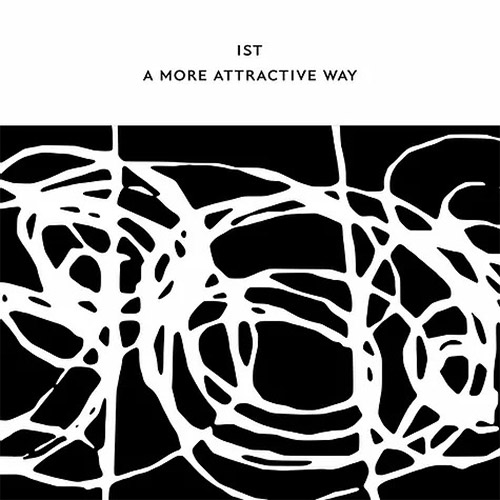





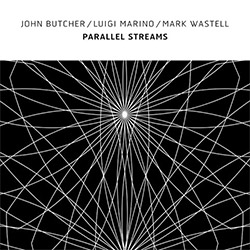
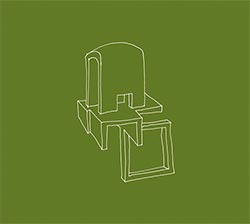

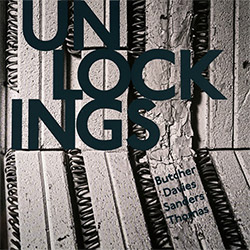
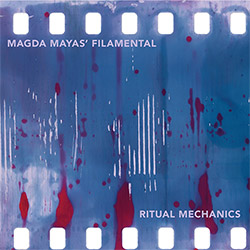

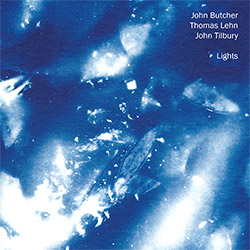
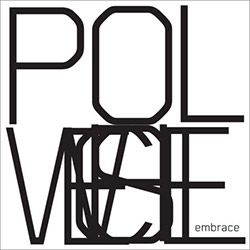


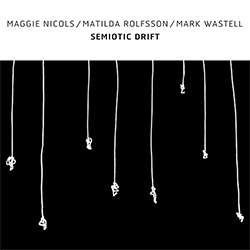
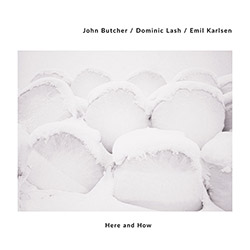
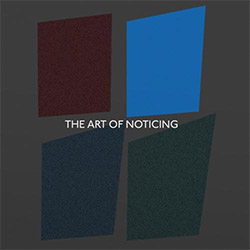
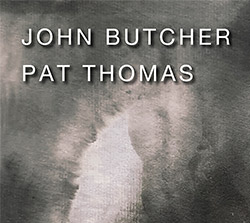
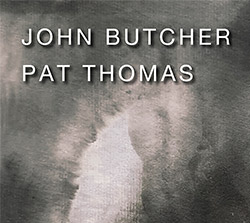
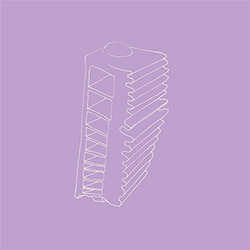
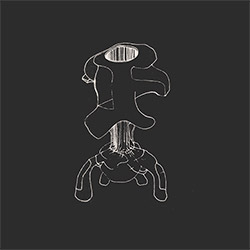

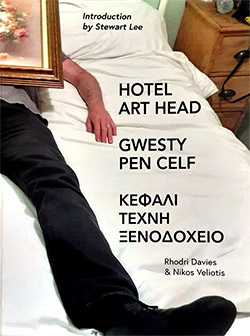








![+DOG+: The Light Of Our Lives [2 CDs]](https://www.teuthida.com/productImages/misc4/36009.jpg)


![Parker, Evan / Jean-Marc Foussat: Insolence [VINYL]](https://www.teuthida.com/productImages/misc4/36398.jpg)









![Deupree, Jerome / Sylvie Courvoisier / Lester St. Louis / Joe Morris: Canyon [2 CDs]](https://www.teuthida.com/productImages/misc4/36404.jpg)


![Eternities: Rides Again [CASSETTE]](https://www.teuthida.com/productImages/misc4/36247.jpg)

![Lopez, Francisco: Untitled (2021-2022) [2 CDs]](https://www.teuthida.com/productImages/misc4/36438.jpg)




![Eventless Plot | Haarvol: The Subliminal Paths [CASSETTE + DOWNLOAD]](https://www.teuthida.com/productImages/misc4/36232.jpg)







![Eventless Plot | Francesco Covarino: Methexis [CASSETTE + DOWNLOAD]](https://www.teuthida.com/productImages/misc4/36231.jpg)



![Das B (Mazen Kerbaj / Mike Majkowski / Magda Mayas / Tony Buck): Love [VINYL]](https://www.teuthida.com/productImages/misc4/36329.jpg)



![Hemphill Stringtet, The: Plays the Music of Julius Hemphill [VINYL]](https://www.teuthida.com/productImages/misc4/36409.jpg)









![Money : Money 2 [2 CDs]](https://www.teuthida.com/productImages/misc4/35894.jpg)




![Klinga, Erik: Elusive Shimmer [VINYL]](https://www.teuthida.com/productImages/misc4/36258.jpg)
![CHANGES TO blind (Phil Zampino): Volume 9 - I Wave on a Fine Vile Mist [CD + DOWNLOAD]](https://www.teuthida.com/productImages/misc4/36061.jpg)

![Wallmart / Rubbish: Asset Protection [split CD]](https://www.teuthida.com/productImages/misc4/35900.jpg)


![+Dog+: The Family Music Book Vol. 5 [2 CDs]](https://www.teuthida.com/productImages/misc4/35897.jpg)
![Kuvveti, Deli : Kuslar Soyledi [CASSETTE w/ DOWNLOAD]](https://www.teuthida.com/productImages/misc4/36107.jpg)

![Nakayama, Tetsuya: Edo Wan [CASSETTE w/ DOWNLOAD]](https://www.teuthida.com/productImages/misc4/36105.jpg)

![Brown, Dan / Dan Reynolds: Live At The Grange Hall [unauthorized][CASSETTE]](https://www.teuthida.com/productImages/misc4/36245.jpg)








![Palestine, Charlemagne / Seppe Gebruers: Beyondddddd The Notessssss [VINYL]](https://www.teuthida.com/productImages/misc4/36206.jpg)
![Palestine, Charlemagne / Seppe Gebruers: Beyondddddd The Notessssss [NEON GREEN VINYL]](https://www.teuthida.com/productImages/misc4/36207.jpg)

![Laubrock, Ingrid: Purposing The Air [2 CDs]](https://www.teuthida.com/productImages/misc4/35639.jpg)

![Yoko, Ono / The Great Learning Orchestra: Selected Recordings From Grapefruit [2 CDs]](https://www.teuthida.com/productImages/misc4/35841.jpg)









![Zorn, John / JACK Quartet: The Complete String Quartets [2 CDs]](https://www.teuthida.com/productImages/misc4/35609.jpg)

![Lonsdale, Eden: Dawnings [2 CDs]](https://www.teuthida.com/productImages/misc4/35480.jpg)



![Sorry For Laughing (G. Whitlow / M. Bates / Dave-Id / E. Ka-Spel): Rain Flowers [2 CDS]](https://www.teuthida.com/productImages/misc4/35985.jpg)

![Rolando, Tommaso / Andy Moor : Biscotti [CASSETTE w/ DOWNLOADS]](https://www.teuthida.com/productImages/misc4/36106.jpg)


![Electric Bird Noise / Derek Roddy: 8-10-22 [CD EP]](https://www.teuthida.com/productImages/misc4/35970.jpg)








![Elephant9 : Mythical River [VINYL]](https://www.teuthida.com/productImages/misc4/34624.jpg)



![Elephant9 with Terje Rypdal: Catching Fire [VINYL 2 LPs]](https://www.teuthida.com/productImages/misc4/35355.jpg)
![Deerlady (Obomsawin, Mali / Magdalena Abrego): Greatest Hits [VINYL]](https://www.teuthida.com/productImages/misc4/34876.jpg)







![Surplus 1980: Illusion of Consistency [CD]](https://www.teuthida.com/productImages/misc4/35069.jpg)
![Staiano, Moe: Away Towards the Light [VINYL + DOWNLOAD]](https://www.teuthida.com/productImages/misc4/35037.jpg)
![Coley, Byron: Dating Tips for Touring Bands [VINYL]](https://www.teuthida.com/productImages/misc4/17906.jpg)

![Lost Kisses: My Life is Sad & Funny [DVD]](https://www.teuthida.com/productImages/misc4/lostKissesDVD.jpg)